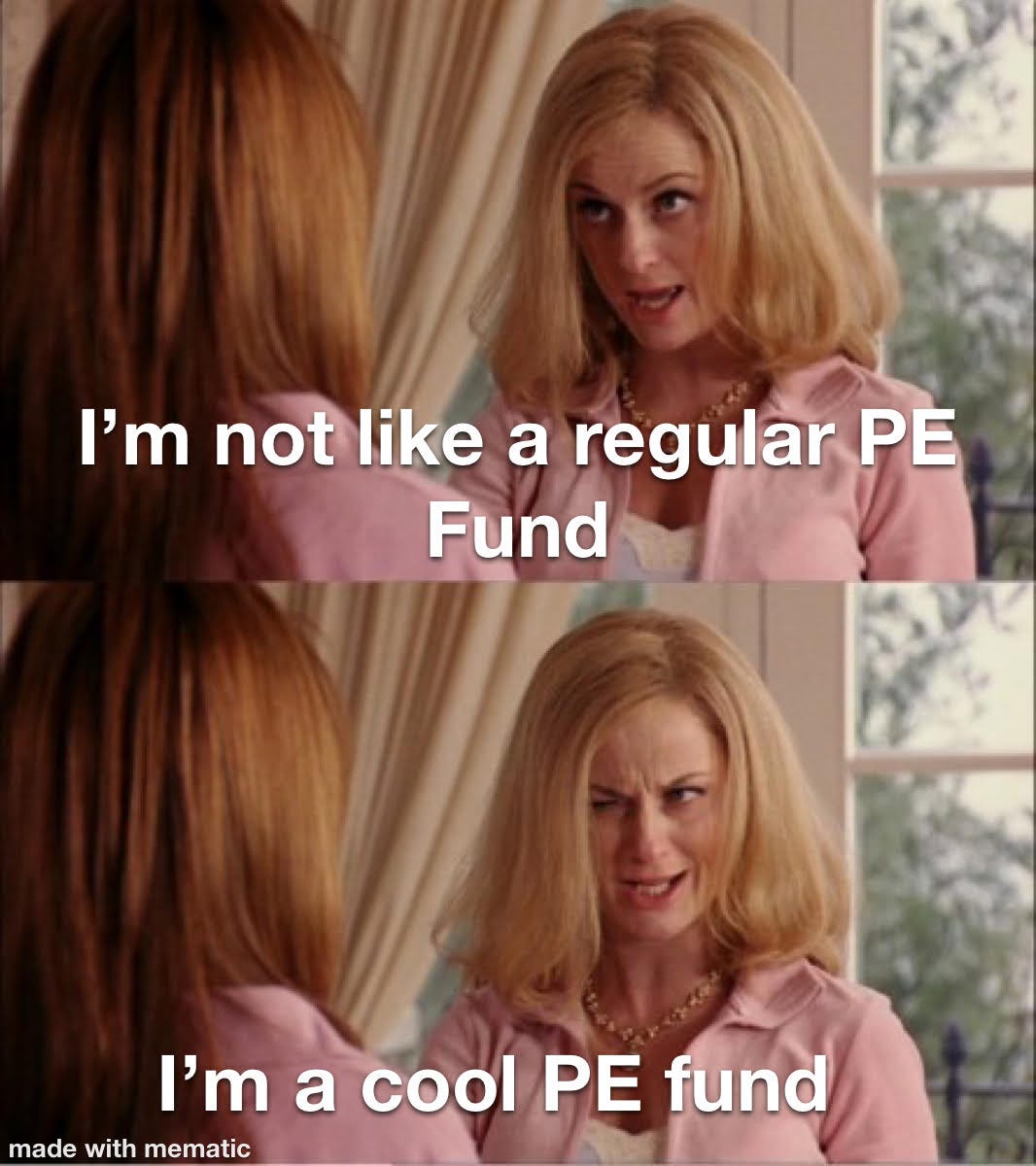Is private equity bad for healthcare?
Nikhil Krishnan of Out-of-Pocket Health had a thoughtful take (and an excellent Mean Girls meme) on this earlier in April, linked here.
This week, he featured a few responses to his post, including one from me. The full text of my response to Nikhil’s original article is below (with an original Mean girls meme, of course) and linked here.
Addendum (4/30/23): A few days after I posted this, NYT featured a fascinating guest essay, “Why Private Equity is Gutting America,” by an attorney in the U.S. DOJ Antitrust division. He shares my view on the dangers of leverage and adds a whole lot more detail and data on the ways in which PE weakens companies in healthcare and other industries.
I like [Nikhil’s] objective consideration of how PE vs. health systems attempt to increase value in healthcare companies (e.g., referrals, staffing, etc.) and agree that it makes sense to evaluate case by case. I don't think PE is unique in trying to maximize profits in healthcare, and I don't think profit maximization is necessarily value destructive (like your CareMore example). But what I didn't see in the post -- and what I think is particularly problematic about PE -- is that PE often destroys value in acquired companies by irresponsibly playing around with their capital structure. And playing with capital structure is, after all, the basic premise of PE.
A great example in healthcare is Weight Watchers: it was purchased in an LBO in 1999 and the buyers not only levered up the company as part of that transaction but then also added massive amounts of debt in the early 2000s to give the owners liquidity through share buybacks. Now that interest rates have risen and WW's core business is in decline, WW has an unmanageable debt load and real solvency concerns. So while PE management may have been acting in (PE) shareholders' best interest with the buybacks, they mismanaged the company's fundamentals, and therefore long-term shareholder value, by taking on so much debt. A similar (non-healthcare) example is the story of how [now-Fed Chairman] Jay Powell acquired a manufacturing company called Rexnord when he was at Carlyle and massively destroyed value by loading up Rexnord with unsustainable amounts of debt. Carlyle still managed to sell the company for a $900M profit -- this Fortune article has a good summary of the story.
So overall I don't think the problem with private equity is that it tries to make companies more efficient or that it tries to increase profits. I think the problem with private equity is private equity -- the mechanics of the leveraged buyout model and how the incentives of PE buyers and their acquired companies can diverge in destructive ways.




